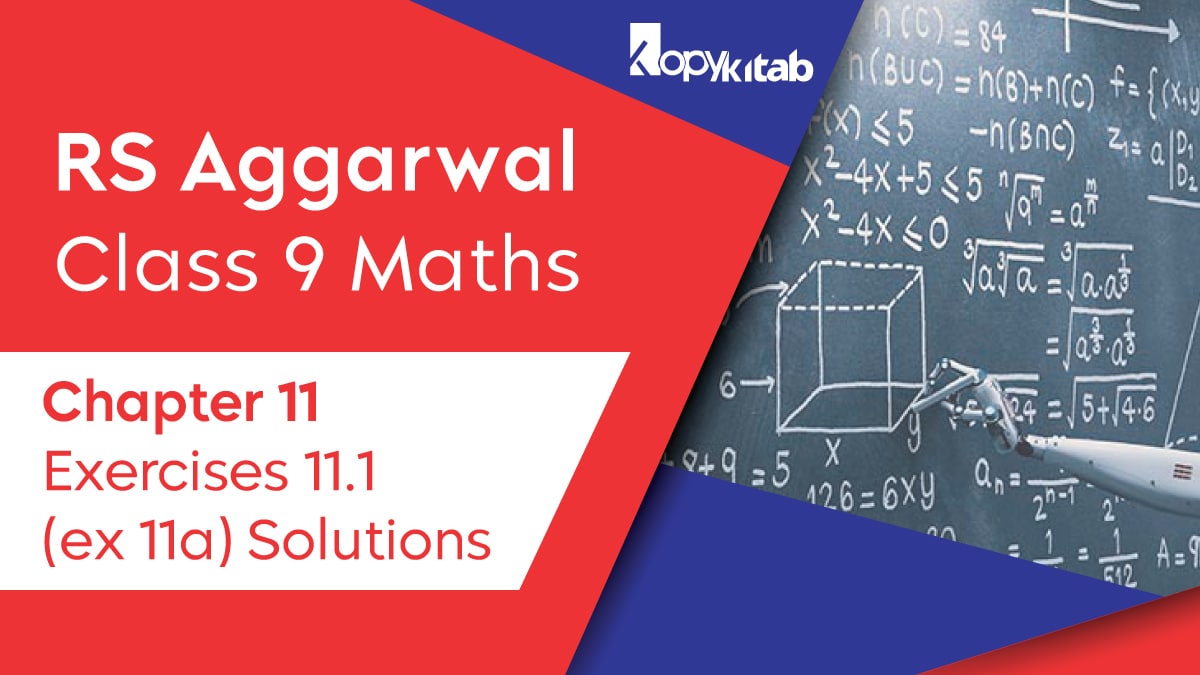RS Aggarwal Chapter 11 Class 9 Maths Exercise 11.1 Solution: Areas of Parallel Quadrilateral and Triangle is an essential chapter from the point of view of next year’s board examination. RS Aggarwal is a dedicated practice in Chapter 11 of Class 9 Maths Solutions, which has 38 questions for your practice. Some of these questions also have 4-5 subtypes for a better review. The main topics covered in this exercise are axioms of the Euclidean region, which figures on the same base and between the same parallel lines, and the parallelogram also has the same base and the same parallels. Calculation of the base and height of a parallelogram is also included in this practice.
This chapter of RS Aggarwal Solutions for Class 9 Maths has only one dedicated exercise which covers the full range of questions:
The first is to identify the figures along a joint base and between the corresponding parallel lines. It has six subtypes.
The next three elements try to find the area of a parallelogram and the length of its sides.
The next three questions are based on trapezoidal. They mainly focus on finding the area.
The following questions are based on proving various theorems and their applications. These problems mainly focus on the triangle and its properties with variations of quadrilateral and rhombus.
Some questions on · 27 are based on finding the area of a parallelogram with intermediate difficulty.
About After this, by the end, all the questions are trying different applications on triangles and trapezoids with much higher difficulty levels.
Know more about the chapter here.
Download RS Aggarwal Chapter 11 Class 9 Maths Exercise 11.1 Solution
Important Definition for RS Aggarwal Chapter 11 Class 9 Maths Exercise 11.1 Solution
Area: It is the amount of planar surface that is being covered by a closed geometric figure in an even or uneven manner. Every closed figure imparts some areas that can always be calculated.
Identifying the Figures on the Common Base and Between the Same Parallels
It can only be said true for any two figures if:
- a) They both have a common side.
- b) The sides that are parallel to the common base and also the vertices opposite to that side lie on a similar straight line, which is parallel to the base.
Triangle: A plane figure that is bounded by three straight lines is called a triangle. It is the simplest form of a polygon. It is a closed figure that is formed by joining three line segments.
Area of a Parallelogram
Area of a parallelogram = b×h
where ‘b′ is known as the base, and ‘h′ is the corresponding altitude or height.
Area of a Triangle
Area of a triangle = (1/2)×b×h
where “b” is known as the base, and “h” is the corresponding altitude.
Many theorems need to be learned for comfortable solving of problems.
Theorem 1
Statement: Diagonals of a parallelogram divides it into two triangles of equal area.
Theorem 2
Statement: Parallelograms that are on a similar base and between the same parallel lines are equal in area.
Theorem 3
Statement: Triangles that share a similar base and are formed between the same parallels are equal in area.
Theorem 4
Statement: Triangles having equal areas and having one side of one of the triangles similar to one side of the other, always their corresponding altitudes similar.
Know more here.
